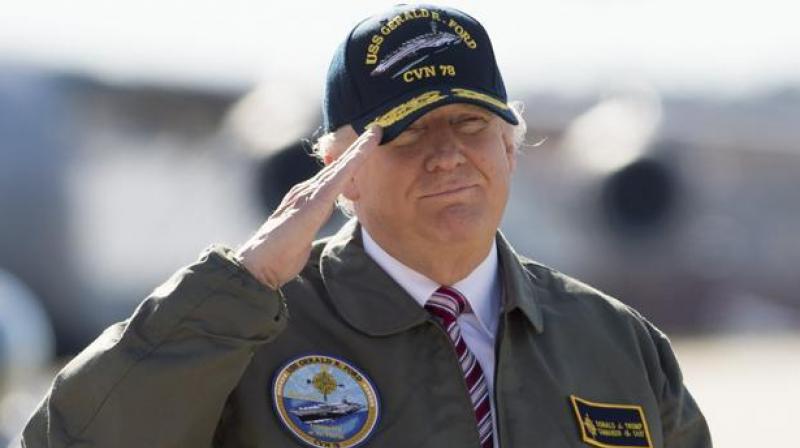Washington, Minnesota seek to halt Trump's new travel ban in court

Washington: Several states said on Thursday they would move forward with legal challenges to a revised executive order signed by President Donald Trump this week that temporarily bars the admission of refugees and some travellers from a group of Muslim-majority countries.
The new travel order, which is set to take effect on March 16, changed and replaced a more sweeping ban issued on Jan. 27 that caused chaos and protests at airports.
The first order was hit by more than two dozen lawsuits, including a challenge brought by Washington state and joined by Minnesota.
In response to Washington's suit, US District Judge James Robart in Seattle ordered an emergency halt to the policy last month. That ruling was upheld by an appeals court in San Francisco.
Washington state Attorney General Robert Ferguson said on Thursday he planned to ask Robart to confirm that his ruling would also apply to Trump's revised order, which would halt it from being implemented.
Ferguson told a news conference the new order harmed a "smaller group" of individuals but that would not affect the state's ability to challenge it in court.
He said the burden was on the Trump administration to show that the court ruling from last month did not apply to its new policy.
A U.S. Department of Justice spokeswoman declined to comment on pending litigation.
The government has said the president has wide authority to implement immigration policy and that the travel rules are necessary to protect against terrorist attacks.
New York's attorney general, Eric Schneiderman, said on Thursday he would be joining Washington's lawsuit against the new ban and the state of Oregon said it would join too.
The opposition comes on top of a separate legal challenge to the new ban brought by Hawaii on Wednesday. Hawaii had also sued over the previous order and is seeking to amend its complaint to include the new ban. A hearing in that case is set for next Wednesday, a day before the clock starts on the new order.
The states and immigration advocates argue the new ban, like the original one, discriminates against Muslims.
More exemptions
Trump's new executive order was designed with the intention of avoiding the legal hurdles.
While the new order keeps a 90-day ban on travel to the United States by citizens of Iran, Libya, Syria, Somalia, Sudan and Yemen, it excludes Iraq.
Refugees are still halted from entering the country for 120 days, but the new order removed an indefinite ban on all refugees from Syria.
The revisions include explicit exemptions for legal permanent residents or existing visa holders and waivers are allowed on a case-by-case basis for some business, diplomatic and other travellers.
The first hurdle for the lawsuits will be proving "standing," which means finding someone who has been harmed by the policy. With so many exemptions, legal experts have said it might be hard to find individuals a court would rule have a right to sue.

